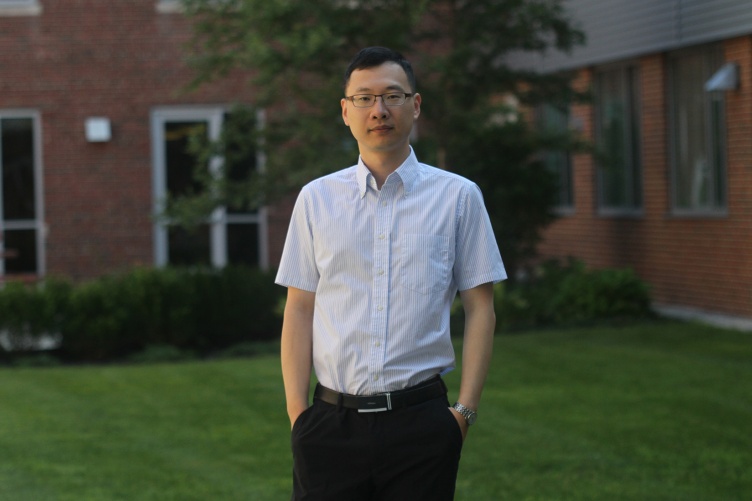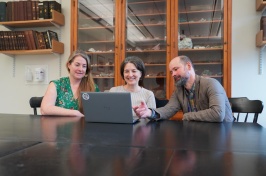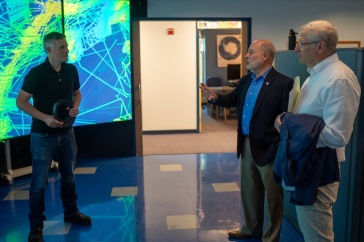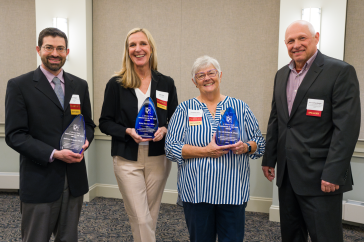
In the early stages of his career, assistant professor of physics and materials science Jiadong Zang is making waves.
For his research prowess, Zang was recently selected as the 2020 International Union of Pure and Applied Physics (IUPAP) Young Scientist Prize in the field of magnetism.
“This is a high recognition of scientific achievement in my early career,” says Zang, whose research focuses on theoretical investigations on topological magnetism, spintronics, and quantum materials. “This award could leverage my future research by meeting new people and expanding my collaborations.”
Zang received the annual international award, given to those within eight years of receiving their Ph.D., for his outstanding theoretical studies of the interplay between magnetism and topology. It also includes a €1,000 prize. Zang was nominated by his former advisor, professor Naoto Nagaosa from University of Tokyo, before being selected by the award committee consisting of members of the IUPAP Commission on Magnetism and previous award winners.
The award will be presented to Zang at the 2021 International Conference of Magnetism in Shanghai, China.
The recognition was not a surprise for Chuck Zercher, dean of the College of Engineering and Physical Sciences, who says Zang is a rising star in the field of theoretical condensed matter physics.
“His contributions, even at this early stage in his career, are recognized as providing value to both theoreticians and experimentalists,” says Zercher. “Equally as important, he is a terrific instructor and colleague.”
Zang joined the UNH faculty in 2015 and a year later was awarded a grant for $387,262 from the U.S. Department of Energy’s (DOE) Experimental Program to Stimulate Competitive Research (ESPCoR) program. The grant supported research that discovered an easily made combination of materials that might offer a more stable environment for smaller and safer data storage, ultimately leading to miniature computers.
In March, Zang was named an Alexander von Humboldt Research Fellow for Experienced Researchers from 2020-2022. The award provides a travel stipend for research in Germany up to 18 months and lifetime financial support for German postdocs.





















































